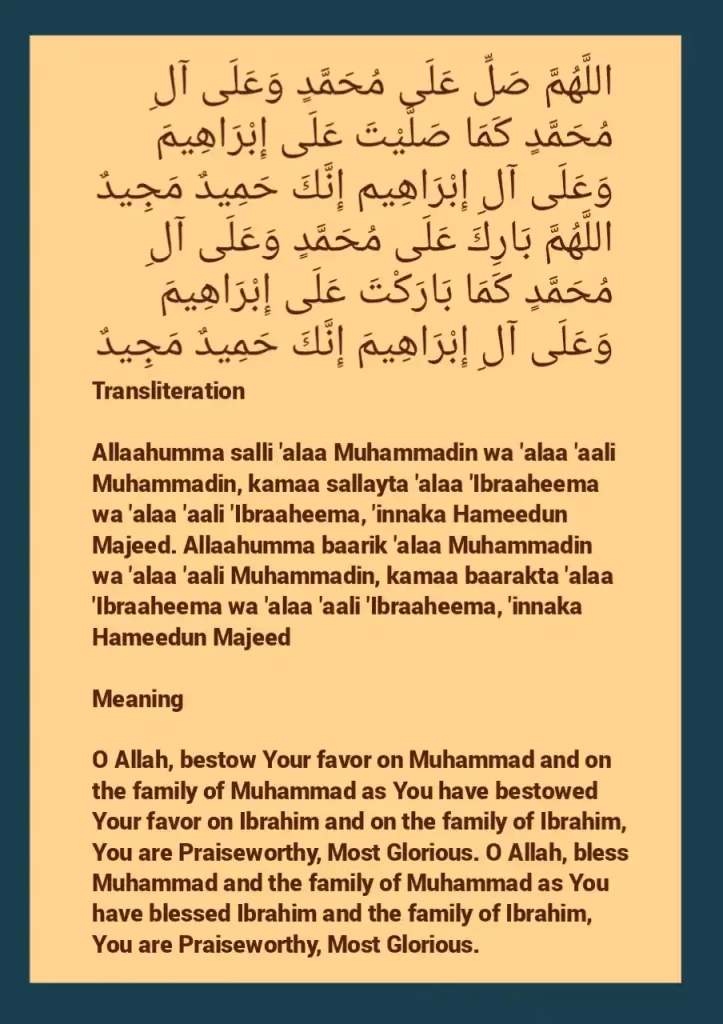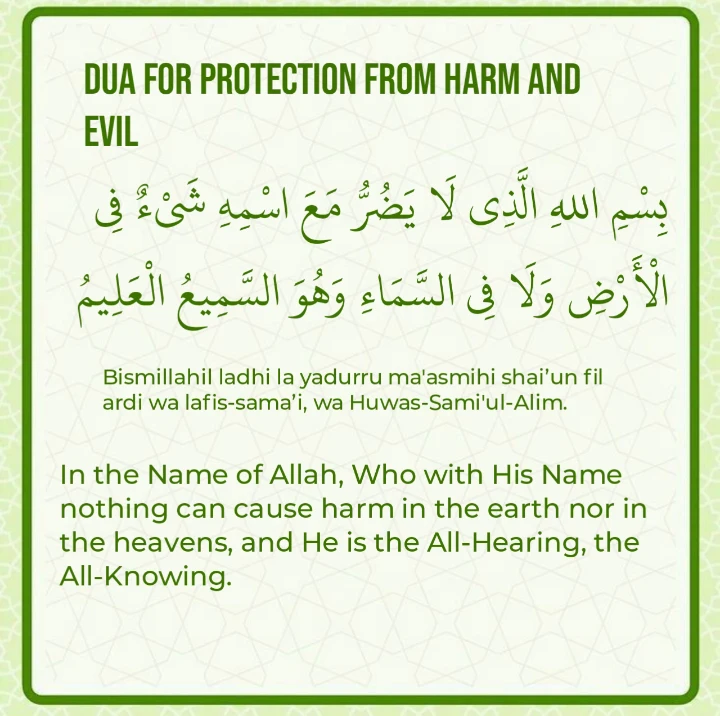Dua After Adhan In Arabic, Transliteration, And Meaning in English
Advertisements
Azan is an Arabic word which means the call to prayer. It punctuates daily life five times. It draws Muslims out of their everyday activities to matters of great importance, salah. The Prophet SAW taught his ummah the Dua after adhan.
Is there any Dua during Azan? What to say after athan? In this post, we will learn the Dua before Azan, its important and to respond to the mu’adhdhin.
The Mu’adhdhin calls out the adhan five times a day at the mosque. The mu’adh-dhin is the person who calls the adhan, the call to prayer.
If you climb a city roof top in a Muslim Country during the time of any of the five daily prayers, you can hear several calls, with long sweeping voices coming from different directions.
The call to prayer is one of the most beautiful sounds. It is delightful to wake to the sound of the dawn adhan, or hear the Isha adhan when the evening is cool and gentle.
Advertisements
The adhan reminds the Muslims that it is time for prayer. When you hear the adhan you should prepare yourself for salah.
You should leave aside, as soon as possible, whatever you may be doing at that time.
The wording of the adhan is:
- Allaahu Akbar, Allaahu Akbar Allah is Most Great, Allah is Most Great
- Allaahu Akbar, Allaahu Akbar Allah is Most Great, Allah is Most Great
- Ash-hadu an laa-ilaaha illallaah I testify that there is no god but Allah.
- Ash-hadu an laa-ilaaha illallaah I testify that there is no god but Allah.
- Ash-hadu anna Muhammadar-rasoolullaah I testify that Muhammad is the Messenger of Allah.
- Ash-hadu anna Muhammadar-rasoolullaah I testify that Muhammad is the Messenger of Allah.
- Hayywa alas Salaah, hayya alas Salaah Hasten to the prayer, hasten to the prayer.
- Hayya alal falaah, hawa alal falaah Hasten to success, hasten to success.
- Allahu Akbar, Allahu Akbar Allah is Most Great, Allah is Most Great.
- La ilaha illallah There is no god but Allah
After saying hayya alalassalaah, hayya alassalaah Hasten to the prayer, hasten to the prayer, hayya alal falaah, hayya alal falaah Hasten to success, hasten to success.
The mu’adh-dhin adds the following statement twice in the dawn prayer: Assalaatu khayrum-minan nawm The prayer is better than sleep.
Advertisements
Abdullah bin Amr bin Al-As reported: I heard the Messenger of Allah SAW saying, When you hear the Adhan, repeat what the Mu’adhdhin says.
Then ask Allah to exalt my mention because everyone who does so will receive in return ten rewards from Allah.
Then beseech Allah to grant me Al-Wasilah, which is a high rank in Jannah, fitting for only one of Allah’s slaves; and I hope that I will be that man.
If any one asks Al-Wasilah for me, it becomes incumbent upon me to intercede for him.” [Muslim]
How Do You Respond To Adhan?
As the mu’adhdhin calls the adhan, a Muslim should repeat after him whatever he says, except for these two statements: hayya alassalaah, hayya alassalaah Hasten to the prayer, hasten to the prayer, hayya alal falaah, hayya alal falaah Hasten to success, hasten to success.
We should not say it because we are the one being invited and the Muadhdhin is the one inviting. So it is not correct for us to repeat, ‘Hayya ala salaah when he says, ‘Hayya ala salaah.
Instead, one should say after each one of these statements, Laa hawla wa laa quwwata illaa billaah. There is no power and no might except with Allah.
This word means that we are ready to respond but we are seeking assistance from Allah.
Hence, Sheik Uthaiymeen said that this is a statement of Isti’aanah, seeking assistance, as it assists a person in his affairs.
Therefore, he will be assisted in his affairs and the rectification of his conditions if he says it.
When he says ‘As-Salatu khairu mina- nawm (meaning: prayer is better than sleep) in the Adhan of Fajr (dawn), we should say, As-Salatu khairu mina-nawm just as he said. When he says, Allahu Akbar, we should say, Allahu Akbar.
When he says, ‘Laa ilaha ilia Allah, we should equally say, ‘Laa ilaha illaa Allah. Then after that we should send salaah on the Prophet SAW by saying:
O Allah exalt the mention of Muhammad because whoever sends salaah upon him once, Allah will send ten salaah upon him in return.

Dua after Adhan in Arabic
The Arabic text of Azan Dua is written as
وَأَنَا أَشَْهَدُ أَنْ لَا إِلَهَ إِلَّا اللهُ وَحْدَهُ لَا شَرِيكَ لَهُ وَأَنَّ مُحَمَّداً عَبْدُهُ وَرَسُولُهُ، رَضِيتُ بِاللهِ رَبَّاً وَبِمُحَمَّدٍ رِسُولاً وَبِالإِْسلاَمِ دِيناً“.
Dua after Adhan Transliteration
Here is the transliteration of Dua for adhan.
Wa ‘anaa ‘ash-hadu ‘an laa ‘ilaaha ‘illallaahu wahdahu laa shareeka lahu wa ‘anna Muhammadan ‘abduhu wa Rasooluhu, radhitu billaahi Rabban, wa bi-Muhammadin Rasoolan wa bil’islaami deenan.
After Adhan Dua In English
The meaning of dua after azan is And I also bear witness that there is no deity has the right to be worshipped but ALLAH alone, Who has no partner, and that Muhammad is His slave and His Messenger. I am pleased with ALLAH as my Lord, with Muhammad (peace be upon him) as my Messenger and with Islam as my religion.

2. Dua After Azan In Arabic
The second Dua after azan is written as
اللَّهُمَّ رَبَّ هَذِهِ الدَّعْوَةِ التَّامَّةِ، وَالصَّلَاةِ الْقَائِمَةِ، آتِ مُحَمَّداً الْوَسِيلَةَ وَالْفَضِيلَةَ، وَابْعَثْهُ مَقَاماً مَحْمُوداً الَّذِي وَعَدْتَهُ، إَنَّكَ لَا تُخْلِفُ الْمِيعَادَ.
Transliteration
Allaahumma Rabba haadhihi ad-dawati-taammah wasalaat il-qaaimah aati Muhammadan al-waseela wal-fadeelah wab’athhu maqaaman mahmoodan alladhee wa’adtahu innaka laa tukhlif ul-Mee’aad.
Meaning in English
O Allah, Lord of this perfect call of the established prayer, grant Muhammad the Wasilah and superiority and raise him up to a praise worthy position which You have promised him. For You do not break Your Promise).

Thence, we become eligible for the intercession of the Prophet SAW when we ask Allah to bless him and grant him Al- Wasilah; that is, we become one of those entitled to his intercession.
What is Al-Wasilah?
It is the highest station in paradise. It is meant for one of the servants of Allah. The Prophet SAW said, “I hope I will be the one.”
This hope, Allah willing, will come to reality because we know that the best of creatures in the sight of Allah is Muhammad.
In addition, the Ummah of Muhammad beseech Allah for it after every Adhan, and the supplication between the Adhan and Iqaamah is never rejected.
Hence he SAW said, “I hope I will be the one.”
Therefore, when we hear the Mu’adhdhin, it is good to say the like of what he says.
Even if you are reciting the Qur’an, pause in order to respond to the Mu’adhdhin and continue with your recitation after completion of the Adhan.
However, most scholars opined that you do not respond to the Mu’adhdhin when observing the Prayer because it involves a specific preoccupation and the Adhan is lengthy; that is, it will engross you for a reasonable length of time.
However, when you finish your prayer, respond to the Muadhdhin because you were mute and preoccupied with your Salat.
Similarly, if a person is answering the call of nature, that is, he is urinating or defecating when the Muadhdhin is pronouncing the Adhan, he should not respond to the Muadhdhin because this is remembrance of Allah.
However, when you finish and come out of the toilet, you should respond to the Muadhdhin.
It is said that he should respond by following the Muadhdhin with his heart.
However, this opinion is questionable based on the saying of the Messenger of Allah: “Repeat what he says”. Following with the heart is not the same as following with word.
Similarly, would you be required to respond to multiple Mu’adhdhins or respond to the first call only and remain silent for others?
Sheikh Uthaiymeen replied that if the calls are concurrent, if the second Muadhdhin begins before the first Mu’adhhdin completes his Adhan while you are preoccupied with the first one, complete with him and do not follow the second one because you are busy responding to the first one.
But if you hear the second call after the completion of the first, repeat after him.
For example, as soon as the first Mu’ahdhdin finishes the Adhan, you hear another Mu’adhhdin beginning his Adhan, repeat after him because it is good.
It is included in the general saying of the Messenger of Allah: “Repeat what the Mu’ahdhdin says.”
However, the scholars, may Allah have mercy on them, restricted this to the one who is yet to pray.
If he prayed after the call to prayer, then he hears another Adhan, they opine that he should not respond to it because the Adhan is not inviting him.
Since he has performed what is obligatory for him, he does not need to follow the Mu’ahdhdin.
The issue here is easy. Inn Uthaiymeen said, respond to the Mu’adhdhin even if you have prayed, you are upon the right course and nothing will harm you.
Dua after Adhan Hadith
Hadith #1
Abu Said Al-Khudri reported: The Messenger of Allah SAW said, “When you hear the Mu’adhdhin (pronouncing the call to Salat), repeat after him what he says.” [Al-Bukhari and Muslim]
Hadith #2
Jabir reported: The Messenger of Allah SAW said, “He who says upon hearing the Adhan: ‘ Allahumma Rabba hadhihid-dawati- ttammati, was-salatil-qa’imati, ati Muhammadanil-wasilata wal-fadhilata, wabathu maqaman mahmuda nilladhi wa ‘adtahu.
Meaning [O Allah, Rubb of this perfect call (Dawah) and of the established prayer (As-Salat), grant Muhammad the Wasilah and superiority, and raise him up to a praiseworthy position which You have promised him]’, it becomes incumbent upon me to intercede for him on the Day of Resurrection.” [Al-Bukhari]
Hadith #3
Sad bin Abu Waqqas reported: The Prophet SAW said, “He who says after the Adhan : ‘ Ash-hadu an la ilaha illallah Wah-dahu la sharika Lahu; wa ash-hadu anna Muhammadan ‘abduhu wa Rasuluhu, radhitu Billahi Rabban, wa bi Muhammadin Rasulan, wa bil Islami Dinan.
Meaning [I testify that there is no true god except Allah Alone; He has no partners and that Muhammad (SAW) is His slave and Messenger; I am content with Allah as my Rubb, with Muhammad as my Messenger and with Islam as my Deen],’ his sins will be forgiven.” [Muslim]
Anas reported: The Messenger of Allah SAW said: “The supplication made between the Adhan and the Iqamah is never rejected.” [Abu Dawud and At-Tirmidhi]
The Sunnah of Adhan
- To repeat the phrases uttered during the azan.
- To say at its conclusion: I am content and pleased that Allah is my Lord, Islam is my religion, and Muhammad is the Messenger.
- To ask Allah to grant Prophet Muhammad SAW the right of intercession and ascendancy and to grant him (on the day of judgement) the best and the highest place in paradise which Allah promised him.
- Then to send Salah upon him.
- And finally to ask Allah for your needs.
The prescribed five acts mentioned above should never be overlooked.
Benefits
Supplication between the Adhan and the Iqamah is never rejected.
As for the last hadeeth in this post, it encourages supplication between the Adhan and the Iqaamah; acceptance of such supplication is swift. Therefore, it is important for you to seize this opportunity to supplicate to Allah that He may respond to you.
Virtues Of Azan
One of the virtues of Azan is the hadeeth of Aboo Hurayrah (may Allah be pleased with him) that when the Mu’adhdhin pronounces the Adhan, the Devil will retreat and flee because he dislikes hearing the remembrance of Allah, the Mighty and Sublime.
This is because Satan detests and hates what entails the worship of Allah from men, and what he loves most is associating partners with Allah and sins because he enjoins indecencies.
So when the Mu’adhdhin pronounces the Adhan he flees from such place in order not to hear the Adhan.
When the Adhan is over he returns to mislead or hoodwink the son of Adam. When the Iqaamah is called, he turns back and flee again.
Then when the Iqaamah is over he returns so as to confuse a person in the prayer by reminding him of many things he had forgotten.
Experience affirms this matter. At times, a person might have forgotten some things but Satan would open the door of remembrance for him when he enters the prayer.
It was mentioned that a man complained to another man that a deposit was placed in his custody but he failed to recall its location.
So he advised him to perform ablution and observe two Rak’ah that he may remember it. The man did it and he remembered it, Satan reminded him of it.
And the Messenger of Allah spoke the truth.
In this hadeeth, the Prophet SAW intended two great benefits:
The first benefit: explaining that the Adhan distances Satan. Hence, most scholars stated that it is recommended to pronounce the Adhan into the ears of a newborn in order to drive Satan away from him.
Other scholars stated that the Adhan should be pronounced into his ears so that the first thing he will hear is the remembrance of Allah, the Mighty and Sublime.
In any case, remembrance of Allah drives away Satan. However, will the Adhan drive away Satan if a person pronounces it at other than the time of Salat?
Allah knows best, but remembrance of Allah generally drives away Satan because Al-Khannas means the one that withdraws when Allah is remembered.
Advertisements








6 Comments